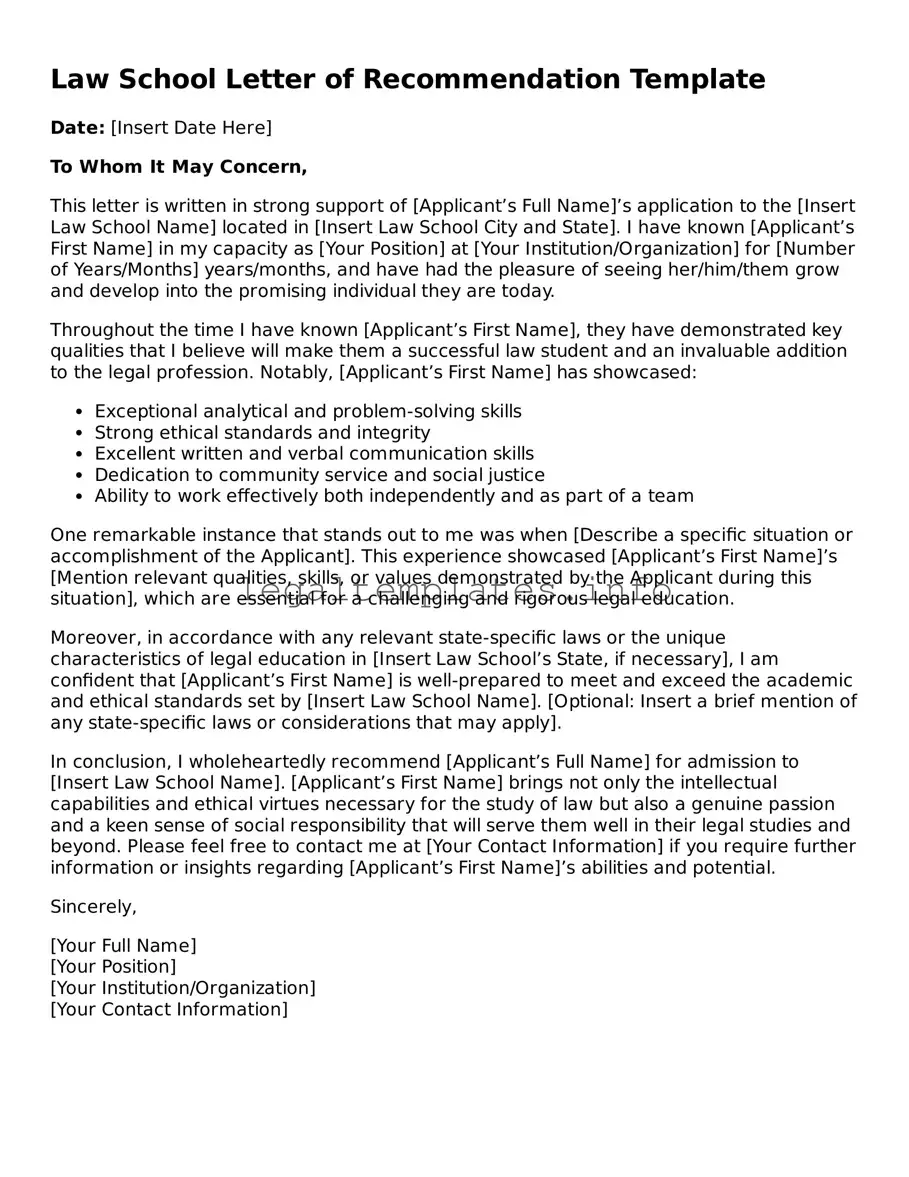1. What is a Law School Letter of Recommendation form?
A Law School Letter of Recommendation form is a document that is filled out by someone who knows the law school application candidate well, typically a professor or professional mentor. This form provides a detailed insight into the applicant’s abilities, character, and potential as a future law student and legal professional. The goal is to give the admissions committee a comprehensive view of the candidate beyond what is visible through GPA and test scores.
2. Who should write a Letter of Recommendation for Law School?
It is best to choose someone who closely knows your academic performance or professional achievements, such as a professor, employer, or mentor. Ideally, the person should be familiar with your critical thinking, analytical skills, and ethics, all of which are crucial for a career in law. Selecting someone who has personally witnessed your growth and can vouch for your potential in law school is key.
3. How many Letters of Recommendation do I need for Law School?
Most law schools require at least two letters of recommendation, but it’s not unusual for them to accept three or more. Check the specific requirements of each school to which you are applying, as they can vary.
4. What should be included in a Law School Letter of Recommendation?
A strong letter of recommendation should include details about how the recommender knows the applicant, specific examples of the applicant's skills and accomplishments, an evaluation of character traits relevant to law studies, and a clear endorsement of the applicant as a law school candidate. It’s crucial that the letter provides personal insights rather than just a summary of the applicant's resume.
5. How should I ask someone to write a Letter of Recommendation for me?
Request the recommendation in person if possible, or through a respectful and professional email. Provide your recommender with your resume, a list of law schools to which you are applying, deadlines for each, and any relevant instructions or forms they may need. It's important to ask well in advance of your application deadlines, giving them ample time to write a thoughtful letter.
6. Can a Letter of Recommendation be too long?
While there's no strict length requirement, an effective letter of recommendation is typically one to two pages long. It should be concise enough to keep the reader's interest while providing sufficient detail to support the applicant's candidacy.
7. What is the deadline for submitting Letters of Recommendation?
Deadlines can vary by school, so it’s essential to check the specific dates for each institution you are applying to. Generally, you should aim to have all materials, including letters of recommendation, submitted at least a few weeks before the application deadline to avoid any last-minute issues.
8. Can I read the Letter of Recommendation before it is sent?
It’s common practice for letters of recommendation to be confidential. Waiving your right to view the letter often adds to its credibility. However, some recommenders may share their letters with you directly, but this is at their discretion.
9. What if my recommender has a negative opinion about me?
It’s crucial to choose recommenders who you believe have a positive view of you and your capabilities. If you’re unsure, ask them directly if they feel comfortable writing a strong recommendation for you. It’s better to find someone else if there’s any doubt, as a lackluster or negative letter can harm your application.
10. How do I submit the Letter of Recommendation?
The submission process will depend on the law school’s requirements. Some schools use the Law School Admission Council’s (LSAC) Letter of Recommendation Service, where recommenders submit letters directly to LSAC, which then distributes them to the relevant schools. Other schools may have their own submission guidelines, which will be outlined in their application instructions.

